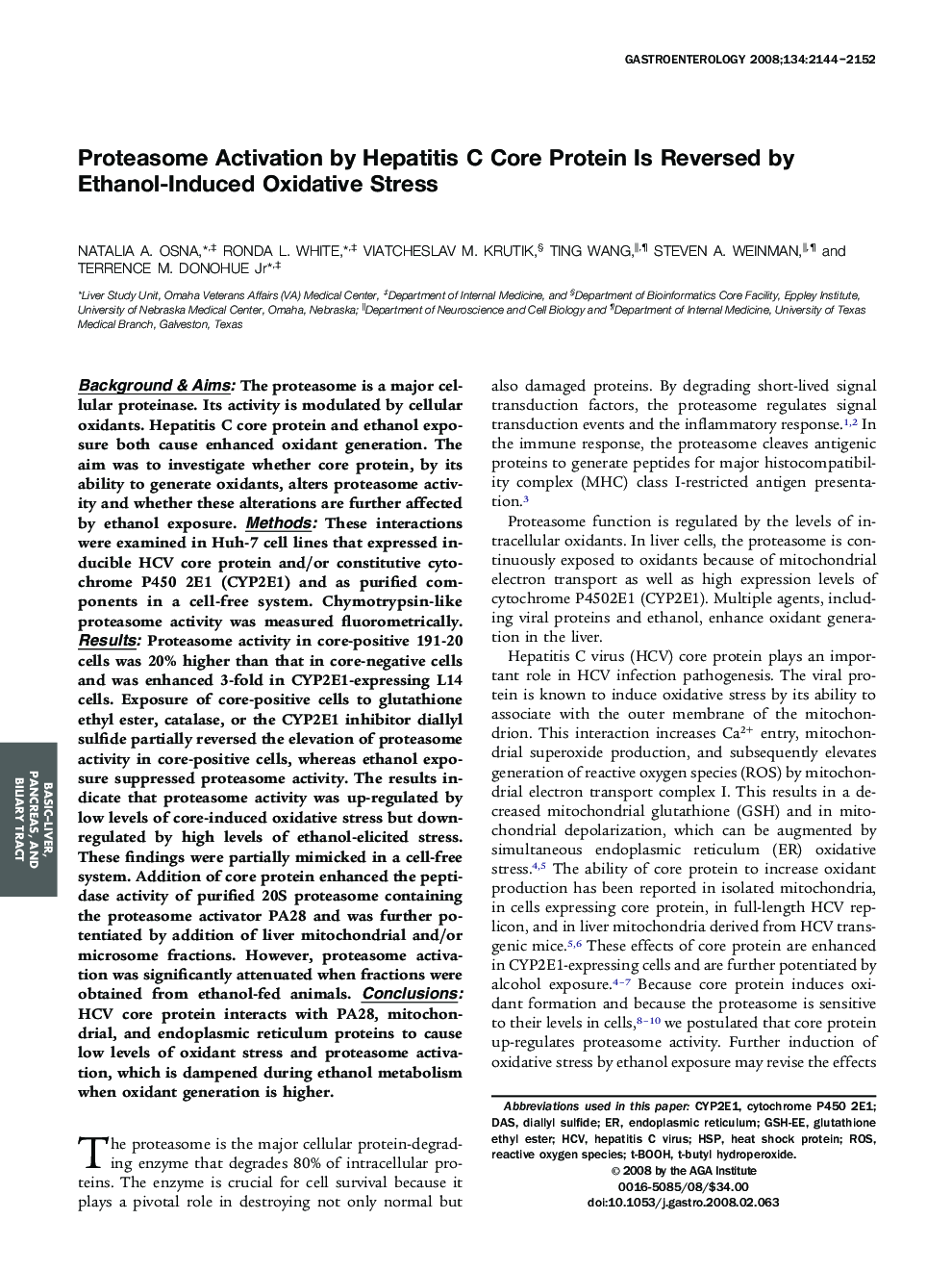| کد مقاله | کد نشریه | سال انتشار | مقاله انگلیسی | نسخه تمام متن |
|---|---|---|---|---|
| 3296694 | 1209872 | 2008 | 9 صفحه PDF | دانلود رایگان |

Background & Aims: The proteasome is a major cellular proteinase. Its activity is modulated by cellular oxidants. Hepatitis C core protein and ethanol exposure both cause enhanced oxidant generation. The aim was to investigate whether core protein, by its ability to generate oxidants, alters proteasome activity and whether these alterations are further affected by ethanol exposure. Methods: These interactions were examined in Huh-7 cell lines that expressed inducible HCV core protein and/or constitutive cytochrome P450 2E1 (CYP2E1) and as purified components in a cell-free system. Chymotrypsin-like proteasome activity was measured fluorometrically. Results: Proteasome activity in core-positive 191-20 cells was 20% higher than that in core-negative cells and was enhanced 3-fold in CYP2E1-expressing L14 cells. Exposure of core-positive cells to glutathione ethyl ester, catalase, or the CYP2E1 inhibitor diallyl sulfide partially reversed the elevation of proteasome activity in core-positive cells, whereas ethanol exposure suppressed proteasome activity. The results indicate that proteasome activity was up-regulated by low levels of core-induced oxidative stress but down-regulated by high levels of ethanol-elicited stress. These findings were partially mimicked in a cell-free system. Addition of core protein enhanced the peptidase activity of purified 20S proteasome containing the proteasome activator PA28 and was further potentiated by addition of liver mitochondrial and/or microsome fractions. However, proteasome activation was significantly attenuated when fractions were obtained from ethanol-fed animals. Conclusions: HCV core protein interacts with PA28, mitochondrial, and endoplasmic reticulum proteins to cause low levels of oxidant stress and proteasome activation, which is dampened during ethanol metabolism when oxidant generation is higher.
Journal: Gastroenterology - Volume 134, Issue 7, June 2008, Pages 2144–2152